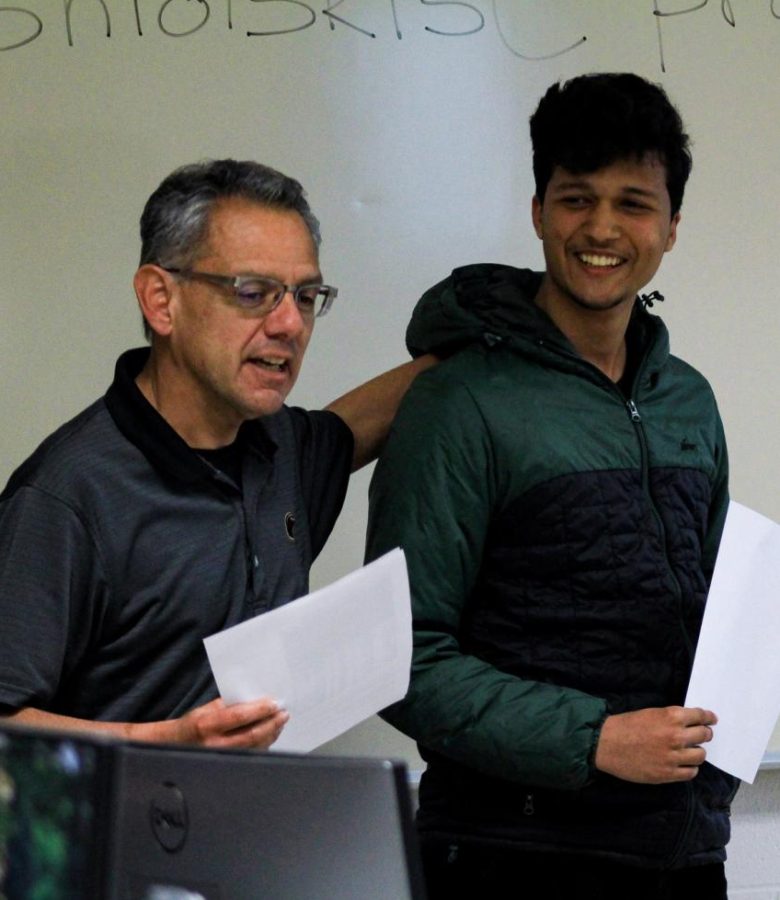Competition rewards students for coding skills
April 3, 2023
Computer science students tried to beat the clock Friday in the annual Computer Programming Contest hosted by the Association for Computer Machinery and sponsored by Praeses, LLC.
Tasked with completing the greatest number of problems, students programmed solutions over four hours. Those with the most solutions in the shortest time received gift cards of $25 for third place, $50 for second and $100 for first.
Contestants competed in two divisions: freshman to sophomore and junior to senior.
Junior Ashamsa Adhikari took home first place in the junior and senior category. She explained what it’s like to win in such a male-dominated field.
“When I was younger, I barely heard of someone who was a woman and in computer science,” Adhikari said. “There are more men in my field, but the number of women is growing exponentially. Now I have classmates who are women and in computer science too.”
Despite the pressing time constraints, Adhikari persevered.
“It was very stressful, but my programs were working. I got through,” Adhikari said.
For everyone, the competition put their skills to the test. For some, it pushed them to their limits. Freshman Swoyam Thapa managed to conquer the code and exit $100 richer after winning first place.
“It was stressful,” Thapa said. “I was shaking while typing, and my hands are still shaking.”
Thapa said he plans to attend more programming contests in the future. In doing so, he said he wants to be more efficient and get even faster.
“In computer science, it’s how long it takes for you to run your program,” Thapa said. “I want to make the run time shorter if possible.”
Aside from a fun event, the contest provided real-world experience. One contestant, senior Olivia Howard, related this competition to the hiring process at certain businesses.
“There’s this website called Hacker Ranked that a lot of companies use to assess people and their skills in coding,” Howard said. “A lot of the certifications happen within a time limit, and you have to solve certain problems.”
After graduating, Howard said she plans to be a software engineer. She mentioned how contests like this have helped to brainstorm different ways around a problem and find quick solutions.
Professor of Computer Science Jose Cordova described the contest as an “all-hands-on-deck event.” Faculty members from the entire department helped to make the event come together.
Cordova explained that some faculty ran the administrative side of the competition while others judged submissions as they were submitted.
There were also faculty members present in the room during the contest to ensure all students followed the event rules.



